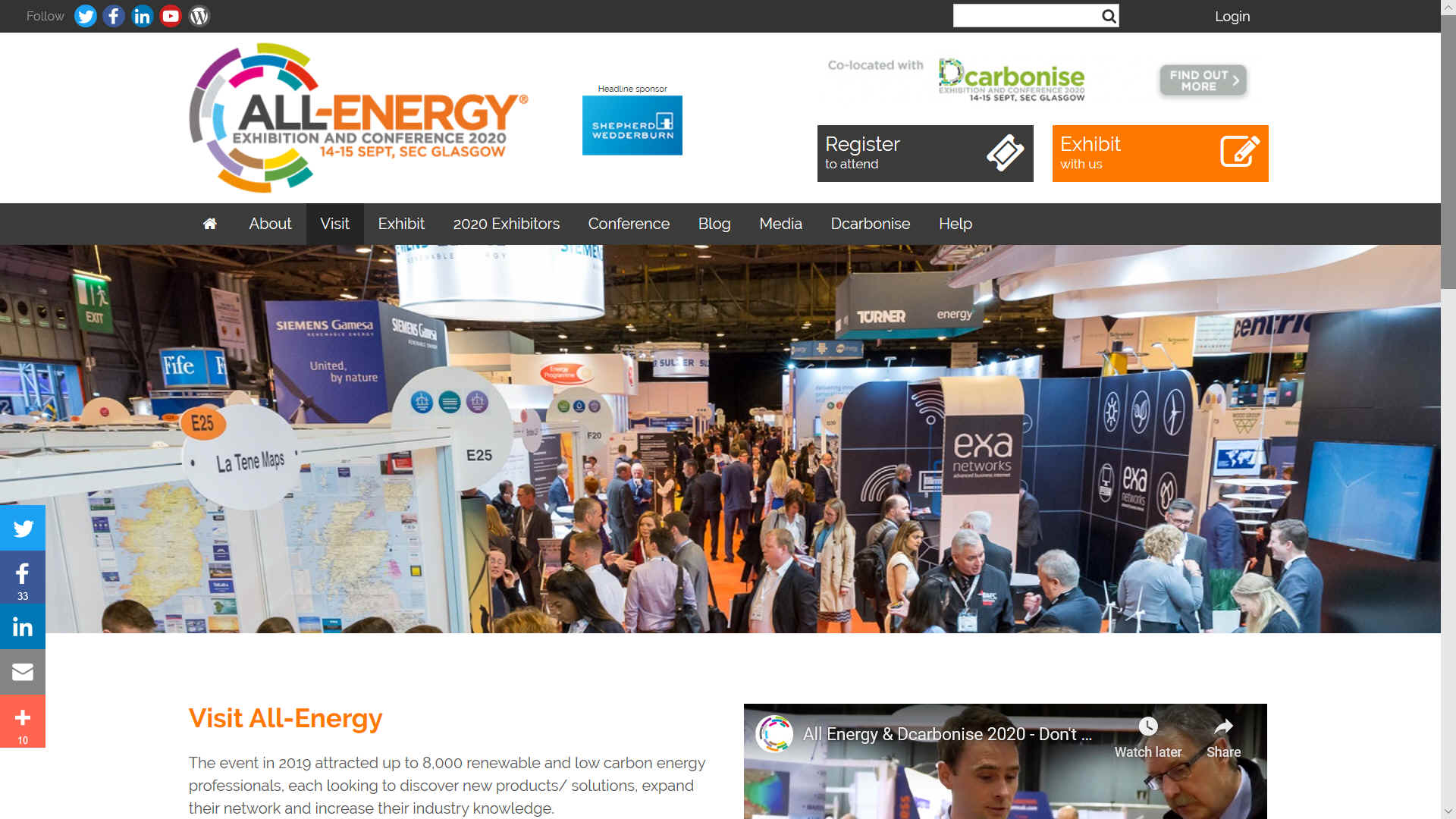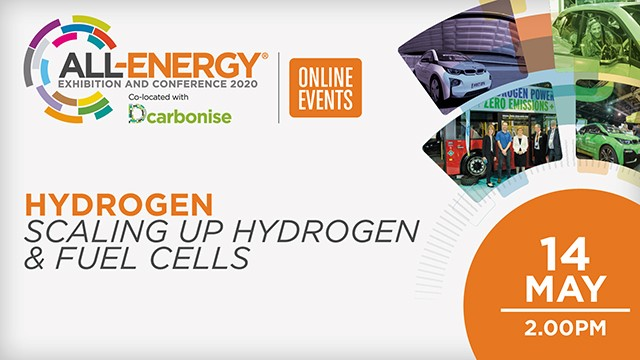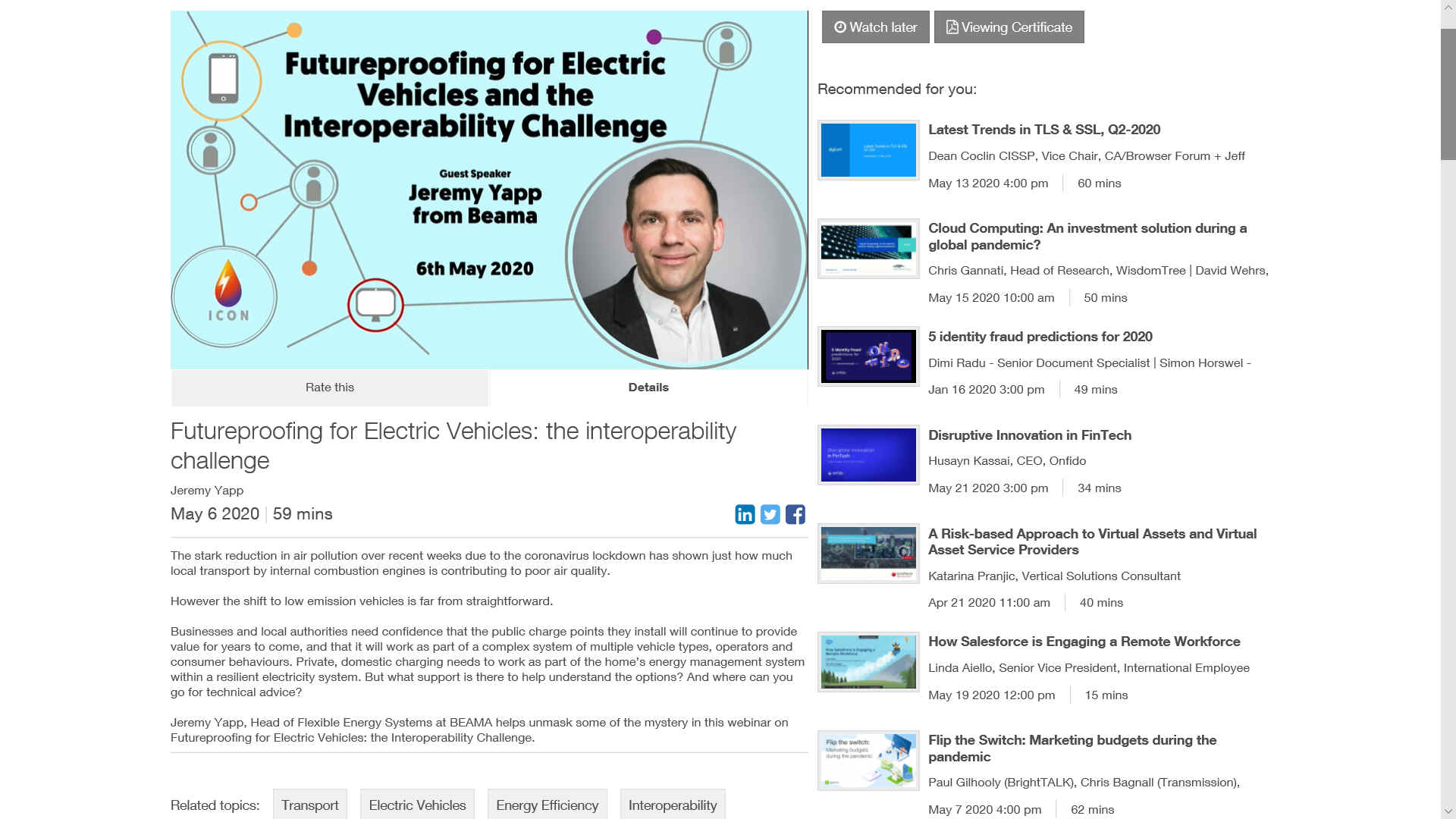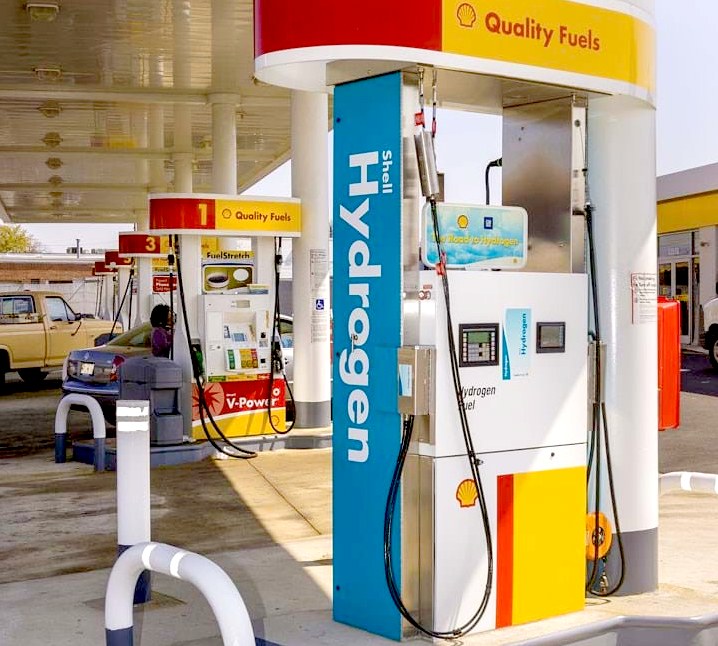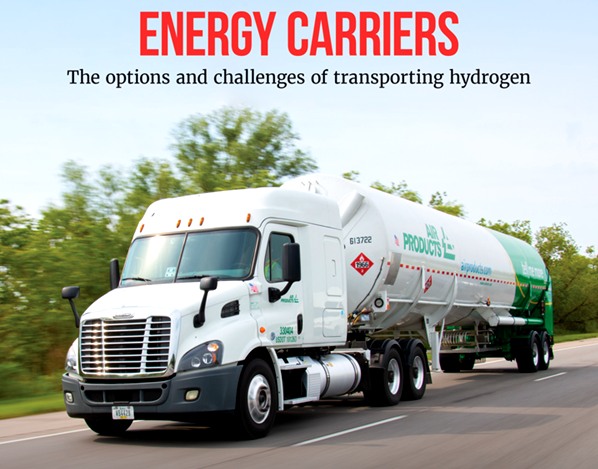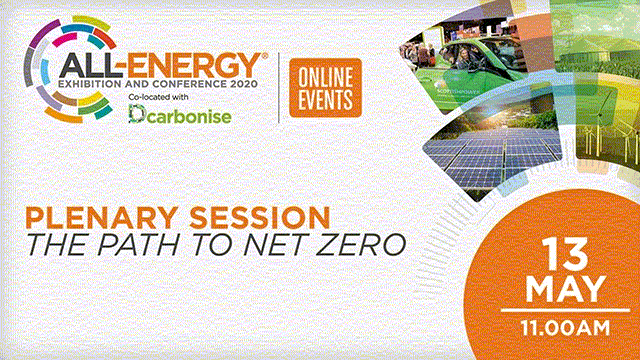|
ALL ENERGY D'CARBONISE 2020
Please use our A-Z INDEX to navigate this site where page links may lead to other sites
|
|||||||||||||||||||||||||||||||||||||||||||||||||||||||||||||||||||||||||||||||||||||||||||||||||||||||||||||||||||||
|
The
All-Energy event in 2019 attracted up to 8,000 renewable and low carbon energy professionals,
looking to discover new products and solutions, expand their network and increase their industry knowledge.
CONFERENCE TOPICS
Bioenergy
- Biomass – policy; production; use; case histories; challenges and opportunities; innovative solutions
- Biogas – policy; challenges and opportunities; production; use; and energy conversion
- Biofuel – policy; challenges and opportunities; production; use; and energy conversion (see also Circular economy; and Energy from waste)
Carbon capture and storage (CCS) and carbon capture usage and storage (CCUS)
– policy/strategy; projects; challenges and opportunities; and innovative solutions. Circular economy in the built environment
- policy/ strategy, projects, case histories, challenges and opportunities, innovative solutions and including:
- Circular economy materials for low carbon buildings
– How to reduce embedded carbon from reused, recycled or remanufactured materials. Making use of natural materials with lower embedded carbon
- How digital technology can future-proof construction and design out waste with the benefit of reduced embedded carbon from reduced material use and waste generation. Making use of natural material with lower embedded carbon .
Community and local energy
-
What is a community?
Corporate PPAs
- case histories/lessons learned from both sides of the ‘fence’ would be appreciated.
Disruptive technology, digitalisation and cyber security
– innovation to the fore!
Energy efficiency in the built environment
- policy/strategy; - the business of energy efficiency; - case histories; - corporates – meeting requirements; - private landlords – meeting requirements (retrofit to the fore – in Scotland minimum energy Efficiency - requirements for PSLs willb e in force from April at the point of change of tenancy); - public sector – meeting requirements; - SMEs – meeting requirements; - social housing – meeting requirements; smart cities – steps being taken; - retrofit; - insulation; - lighting (and steps for reducing lighting energy consumption); - innovative solutions; - all coupled with behavioural change.
Energy from waste
- policy/strategy; challenges and opportunities; case histories; and innovative solutions.
Energy storage
– we are eager to feature all forms of energy storage and include presentations on usage, case histories, and innovative solutions aimed at developing cost-effective and suitable approaches.
Energy systems
– steps to be taken to achieve net-zero. Policy/strategy; innovative solutions and case histories:
-
Planning and innovating net zero
Finance and funding – where is the money in a subsidy free world? We are eager to hear from funders of all types able to help our exhibitors and visitors.
Grid/Smart grid – policy; demand side management (DSM)/ monitoring systems/smart meters; DC power; islands need-cases (e.g. covering interconnection vs active management); interconnectors.
Heating (see Low carbon heat) including a session looking at solutions funded by Scotland’s Low Carbon Infrastructure Transition Programme (LCITP)
Hydrogen and fuel cells – including usage (in transport please refer to the Low Carbon Transport conference stream within Dcarbonise 2020); energy conversion; re-energising UK industry for clean growth; and innovative solutions.
Hydropower – policy/strategy; challenges and opportunities; large/small projects; pumped storage; case histories, innovative solutions.
Industry decarbonisation – Steps to decarbonisation of industry; case histories; innovative solutions; net-zero industry (energy for chemicals, fuels, cement, steel etc) with renewables and CCUS (see also Energy systems: Transition).
Island energy – policy/strategy; challenges and opportunities; innovative solutions.
Low carbon heat – addressing the challenge of decarbonising heat: Policy/strategy; all forms of low carbon heat including renewable heat, heat pumps/air source pumps, hydrogen, geothermal, thermal solar etc); heat networks (district heating), innovative solutions; reducing heat consumption.
Low carbon transport (being held in association with ITS United Kingdom) Presentations and academic posters relating to all modes: cars, goods vehicles and powered two-wheelers (PTWs), cycles, innovative mobility, marine vessels, rail and aviation welcome:
-
Connected and automated vehicles: policy and use cases
Active travel
Innovative mobility: e-bikes, cargo bikes, drones.....
Marine renewables – tidal and wave
Policy; cost reduction (including learning from other sectors); international cooperation and experience; opportunities and challenges; technology transfer from the oil and gas industry + offshore engineering expertise, skills; sharing of learned practices in subsea sector; tidal large/small projects/developments at home and overseas; wave projects/developments at home and overseas – case histories welcome; and innovative solutions.
Smart and sustainable cities –
challenges and opportunities; delivering net zero cities -case histories from cities and towns (UK and overseas); smart solutions; the human factor – getting communities and individuals on board. We would welcome input from construction companies, large property owners, investors, and transport companies with city routes. (Energy efficiency solutions best submitted to Energy efficiency; most transport solutions best submitted to Low carbon transport).
Solar (PV and thermal) – case histories; project/development updates; innovative solutions
Transport (see Low carbon transport subjects below)
Wind – onshore – How can we move things on with speed? Policy/strategy; challenges and opportunities; pre-construction – measurements and analysis in the real world; post-construction – monitoring and modelling for asset productivity and longevity; life extension and repowering – going the extra mile without falling over; and innovative solutions. Cooperation. De-risking investment with dynamic energy yield assessment.
Other – We have received plenty of interesting ideas under this heading! Watch this space to see what other topics we will be taking on board!
.....
Hydrogen: Scaling Up Hydrogen & Fuel Cells
Scotland has set a target for Net Zero by 2045, with hydrogen featuring in plans for rapid decarbonisation of heat, industry, and heavy duty transport. We will hear about progress with transport fuel cell applications from Nicolas Pocard, and with hydrogen for heat from Mark Crowther.
This will be complemented by insights from Mirela Atanasiu and Dr Kerry-Ann Adamson on the priorities for post-COVID economic recovery, and the opportunity to pivot towards
sustainable energy and transport solutions, not just in Scotland but also UK and
Europe.
Speakers:
● Economic recovery with Clean Hydrogen & Fuel Cells - Mirela Atanasiu, Head of Unit at Fuel Cells and Hydrogen Joint Undertaking (FCH-JU), European Commission
● COVID-19 impacts and opportunities - Dr Kerry-Ann Adamson, Principal Consultant, Advisian
● Building the UK’s first 100% hydrogen network with H100 – Mark Crowther, Technical Director, Kiwa
Panel Q&A
Nigel Holmes, Mirela Atanasiu, Nicolas Pocard, Dr Kerry-Ann Adamson, Mark Crowther
Future proofing for Electric Vehicles: the interoperability challenge
The stark reduction in air pollution over recent weeks due to the coronavirus lockdown has shown just how much local transport by internal combustion engines is contributing to poor air quality. This example provides us with a simulation of what it will be like when electric vehicles are the preferred mode of transport, because they don't polute.
However the shift to low emission vehicles is far from straightforward.
Businesses and local authorities need confidence that the public charge points they install will continue to provide value for years to come, and that it will work as part of a complex system of multiple vehicle types, operators and consumer behaviours.
Private, domestic charging needs to work as part of the home’s energy management system within a resilient electricity system. But what support is there to help understand the options? And where can you go for technical advice?
Jeremy Yapp, Head of Flexible Energy Systems at BEAMA helps unmask some of the mystery in this webinar on Future-proofing for Electric Vehicles: the Interoperability Challenge.
A - Z INDEX OF SPONSORS AND ASSOCIATES - WORLD HYDROGEN CONGRESS
TRANSPORT
If we want a practical solution in place within the next 50 years to meet out climate change targets, with implementation starting in the next 7-10 years, hydrogen has many obstacles to overcome, where battery exchange recharging by swapping packs is already making headway in China and India. One potential solution under development by Bluebird Energy Systems is a Dual Fuel service station where energy packs can include hydrogen as the storage medium. With such a system, instead of competing with batteries, hydrogen interests can work alongside battery concerns to build a comprehensive transport infrastructure.
APRIL
2020
- China is promising more subsidies to shore up plunging electric car sales amid the
coronavirus pandemic. China leads the world in transport electrification
having 90% of all electric vehicles on their roads. This is a move to
improve the poor air quality in Chinese cities.
CONTACTS & VENUE
Event Coordinator
- Angela Leftley
SUSTAINING & DISRUPTIVE TECHNOLOGY - A bit of a buzzword and something that many would be entrepreneurs are on the lookout for, but that existing businesses tend to try to ignore, disruptive technology has a habit of wiping out established (old school) household names, as consumers rush to get the latest technology.
In a report from the McKinsey Global Institute, they identified that disruptive technologies can change the game for businesses, creating entirely new products and services, as well as shifting pools of value between producers or from producers to consumers.
Business leaders should then keep their organizational strategies updated in the face of continually evolving technologies, ensure that their organizations continue to look ahead.
Energy-storage devices or physical systems store energy for later use. These technologies, such as lithium-ion batteries and fuel cells, already power electric and hybrid vehicles, along with billions of portable consumer electronics. Over the coming decade, advancing energy-storage technology, such as SmartNet, looks set to make electric vehicles cost competitive, bring electricity to remote areas of developing countries, and improve the efficiency of the utility grids.
Sustaining technology relies on incremental improvements to an already established technology, such as the internal combustion engine being gradually refined over 100 years to give us 50-80 mpg cars.
Disruptive technology lacks refinement, often has performance problems because it is new and may not yet have a proven practical application. Such was the case with Alexander Graham Bell's "electrical speech machine," which we now call the telephone. Computers replaced typewriters. Digital cameras replaces film cameras. Then Smartphones replaced cell phones, also disrupting: pocket cameras, MP3 players, calculators and GPS devices.
With the speed of change these days, sitting still to see how the market develops, is going backwards into commercial oblivion. Much the same can be said for doing nothing about climate change.
LINKS & REFERENCE
https://www.all-energy.co.uk/ https://www.all-energy.co.uk/dcarbonise/ https://www.brighttalk.com/channel/18220/ https://www.brighttalk.com/webcast/18220/405211 https://www.worldhydrogencongress.com/
Please use our A-Z INDEX to navigate this site
This website is provided on a free basis as a public information service. copyright © Climate Change Trust 2020. Solar Studios, BN271RF, United Kingdom.
|
